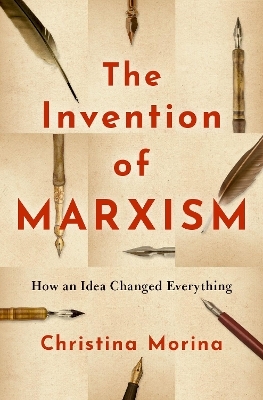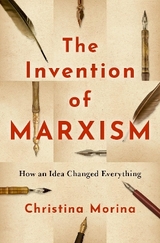The Invention of Marxism
Oxford University Press Inc (Verlag)
978-0-19-006273-6 (ISBN)
- Lieferbar
- Versandkostenfrei
- Auch auf Rechnung
- Artikel merken
How did one man's critique of capitalism guide the course of modern history?
When he died in 1883, Karl Marx left behind an intellectual legacy of formidable proportions and revolutionary potential, yet one that exerted limited actual political, social, or economic influence. The full force of his ideas did not come into play for another generation, and only after they had been appropriated and applied by some of Marxism's earliest proponents. The history of Marxism, in other words, is the story of those who brought Marx's ideas into play, transforming a sweeping but
fractious and occasionally abstruse view of historical and social forces into a coherent plan of action. Christina Morina's illuminating book focuses on the first generation of Marxist who turned the work and ideas of one social theorist, one among many, into one of the most powerful transnational
political movements in modern history.
The Invention Of Marxism is therefore a group portrait, featuring such figures as Rosa Luxemburg, Max Adler, Jean Jaurès, Eduard Bernstein, Karl Kautsky, and Vladimir Lenin—German, French, Russian, Czech—whose lives became dedicated to interpreting and applying Marxist thought. They were the vehicles by which his ideas were read, debated, and gradually adopted in socialist movements across Europe. Morina's fascinating book therefore reconstructs the beginnings of Marxism
through the individual politicization of a group of intellectuals who made it their purpose in life to solve the “social question,” exploring the nexus between their intellectual constructs and social and political reality. The Invention of Marxism shows how what started as a theory of capitalism grew into a
fully-fledged political philosophy and platform, one that shaped the century that followed Marx's death. In short, it reveals how an idea first conquered these individuals and then the world.
Christina Morina is Professor of Modern and Contemporary History at the University of Bielefeld. Her research focuses on major themes in 19th and 20th century German and European history, especially World War II, the Holocaust and bystander history, political and memory cultures in Germany since 1945, the history of Marxism, and the history of historiography.
Acknowledgements
Abbreviations
PROLOGUE: Marxism as a Generational Project
I SOCIALIZATION
Born in the Nineteenth Century: Family Influences
Adolescence and Its Discontents: Emerging Worldviews
Beating the Drum: Literary Influences
II POLITICIZATION
Paths to Marxism I: London, Paris, Zurich, Vienna (1878-1888)
Translating Marxism: Guesde and Jaurès
Star Students: Bernstein and Kautsky
Theory and Practice: Adler's Belated Marxism
Paths to Marxism II: Geneva, Warsaw, St. Petersburg (1885-1903)
The Social Question as a Political Question: Plekhanov's Turn toward Marx
The Social Question as a Question of Power: Struve and Lenin
Engagement as Science: Luxemburg
III ENGAGEMENT
On Misery, or the First Commandment: The Radical Study of Reality
Miserable Living: Depicting Proletarians and Peasants
Miserable Labor: The Proletarian World of Work
On Revolution, or the Second Commandment: Philosophy as Practice
Revolutionary Expectations
Revolution at Last? Dress Rehearsal in St. Petersburg, 1905/06
CONCLUSION: From Marx to Marxism: Fieldworkers, Bookworms, and Adventurers
Bibliography
Index
| Erscheinungsdatum | 27.06.2022 |
|---|---|
| Übersetzer | Elizabeth Janik |
| Verlagsort | New York |
| Sprache | englisch |
| Maße | 156 x 235 mm |
| Themenwelt | Geisteswissenschaften ► Geschichte ► Regional- / Ländergeschichte |
| Sozialwissenschaften | |
| Wirtschaft ► Volkswirtschaftslehre ► Wirtschaftspolitik | |
| ISBN-10 | 0-19-006273-8 / 0190062738 |
| ISBN-13 | 978-0-19-006273-6 / 9780190062736 |
| Zustand | Neuware |
| Haben Sie eine Frage zum Produkt? |
aus dem Bereich




